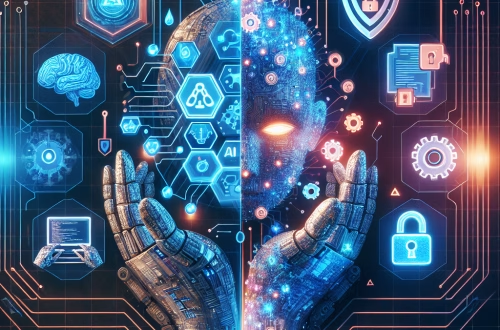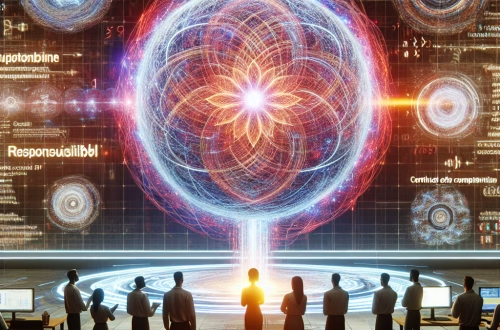ChatGPT vs Mistral for Business Use
Summary:
Businesses exploring AI-powered solutions must weigh the strengths and limitations of models like ChatGPT and Mistral. ChatGPT, developed by OpenAI, excels in conversational AI, content generation, and customer support applications, while Mistral, an emerging open-weight model, offers cost-effective customization and fine-tuning for niche business needs. Understanding their differences in scalability, cost, and accuracy is crucial for optimal adoption. This guide explores key distinctions, use cases, and strategic considerations for businesses new to AI integration.
What This Means for You:
- Choosing the Right Model for Your Budget: ChatGPT offers a polished, ready-to-use solution but can be expensive at scale, while Mistral’s open-weight model allows for cheaper self-hosting. Evaluate your budget and in-house technical expertise before deciding.
- Actionable Advice on Customization: If your business demands specialized language models (e.g., legal or medical terminology), Mistral’s fine-tuning capabilities may be preferable. Invest in data preprocessing to maximize performance.
- Scalability Concerns: ChatGPT handles high-volume interactions seamlessly via OpenAI’s infrastructure, whereas Mistral requires self-managed deployment. Assess whether your team can manage server loads and updates if opting for Mistral.
- Future Outlook or Warning: Regulatory changes around AI and data privacy may impact both models. Businesses leveraging Mistral should monitor compliance risks, while ChatGPT users must stay updated on OpenAI’s usage policies and pricing shifts.
Explained: ChatGPT vs Mistral for Business Use
Introduction to ChatGPT and Mistral
ChatGPT, built by OpenAI, is a proprietary large language model (LLM) optimized for human-like text generation, customer service automation, and creative content. Mistral, developed by Mistral AI, is an open-weight model offering comparable capabilities with more flexibility for businesses needing custom AI solutions. While ChatGPT operates on OpenAI’s API (with strict usage terms), Mistral allows organizations to self-deploy and modify the model, reducing long-term costs but requiring technical upkeep.
Strengths of ChatGPT for Businesses
ChatGPT is highly versatile, supporting:
- Conversational AI: Seamless handling of customer inquiries with minimal setup.
- Content Creation: Reliable for drafting marketing copy, reports, and emails.
- Plugins & Integrations: Native compatibility with tools like Zapier and Microsoft 365.
Its high accuracy and ease of use make it ideal for businesses seeking a turnkey AI solution.
Strengths of Mistral for Businesses
Mistral stands out with:
- Cost Efficiency: No per-token fees; self-hosting reduces operational expenses.
- Customization: Adjust weights and fine-tune for industry-specific jargon (e.g., finance or pharma).
- Data Control: On-premise deployment ensures compliance with strict data governance policies.
Smaller enterprises or those with specialized needs may find Mistral more adaptable.
Weaknesses and Limitations
ChatGPT: High API costs at scale, limited transparency in training data, and potential vendor lock-in.
Mistral: Requires DevOps expertise, lacks enterprise-grade support, and may underperform in multilingual tasks compared to ChatGPT.
Best Use Cases
Opt for ChatGPT if: You need quick deployment, superior conversational flow, or lack technical staff.
Opt for Mistral if: You prioritize data sovereignty, budget constraints, or demand bespoke model adjustments.
Key Considerations Before Adoption
- Calculate Total Cost of Ownership (TCO) over time
- Audit internal AI readiness (skills, infrastructure)
- Test both models with pilot projects before scaling
People Also Ask About:
- Which is more cost-effective for small businesses: ChatGPT or Mistral?
Mistral is usually cheaper for long-term use due to open-weight licensing, but requires upfront investment in servers and AI expertise. ChatGPT’s pay-as-you-go model suits businesses needing minimal setup. - Can Mistral match ChatGPT’s performance in customer service bots?
With fine-tuning, Mistral can approach ChatGPT’s conversational quality but may lag in handling ambiguous queries without extensive training data. - Is my data safer with Mistral versus ChatGPT?
Self-hosted Mistral provides better data control, while ChatGPT processes inputs on OpenAI servers, subject to their privacy policies. - How do I fine-tune Mistral for my industry?
Use curated datasets specific to your domain (e.g., legal contracts) and leverage tools like LoRA adapters for efficient parameter tuning.
Expert Opinion:
The AI landscape is shifting toward hybrid approaches, where businesses combine proprietary models like ChatGPT with customizable options like Mistral. Companies must balance performance with regulatory risks, especially in the EU’s AI Act era. While open-weight models empower innovation, they also demand rigorous testing to avoid bias and hallucinations in business-critical applications.
Extra Information:
- OpenAI’s ChatGPT Updates – Track API changes and feature releases affecting business applications.
- Mistral AI’s Official Blog – Updates on model improvements and benchmarks for enterprise use.
Related Key Terms:
- Best AI model for business automation in 2024
- ChatGPT vs Mistral cost comparison for enterprises
- How to fine-tune Mistral 7B for customer support
- Open-source AI solutions for small businesses
- Data privacy in ChatGPT vs self-hosted Mistral
Check out our AI Model Comparison Tool here: AI Model Comparison Tool
#Business #ChatGPT #Mistral #Compared
*Featured image provided by Dall-E 3





